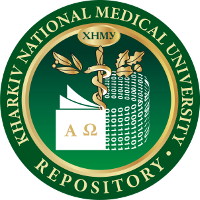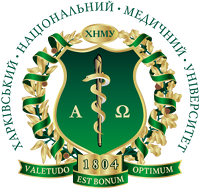Please use this identifier to cite or link to this item:
http://repo.knmu.edu.ua/handle/123456789/31923| Title: | Monitoring fetal maturation - Objectives, techniques and indices of autonomic function |
| Authors: | Hoyer, Dirk Żebrowski, Jan Cysarz, Dirk Goncalves, Hernani Pytlik, Adelina Amorim Costa, Célia Bernardes, Joao Ayres-de-Campos, Diogo Witte, Otto Schleußner, Ekkehard Stroux, Lisa Redman, Christopher Georgieva, Antoniya Payne, Stephen Clifford, Gari Signorini, Maria Magenes, Giovanni Andreotti, Fernando Malberg, Hagen Zaunseder, Sebastian Lakhno, Igor Schneider, Uwe |
| Keywords: | fetal development autonomic nervous system heart rate variability nonlinear signal analysis functional autonomic brain age score fABAS CTG MCG ECG prenatal diagnosis |
| Issue Date: | 18-Apr-2017 |
| Publisher: | IOP Science |
| Citation: | Monitoring fetal maturation-objectives, techniques and indices of autonomic function / D. Hoyer, J. Zebrowski, D. Cysarz, H. Goncalves, A. Pytlik, C. Amorim-Costa, J. Bernardes, D. Ayres-de-Campos, O. W. Witte, E. Schleußner, L. Stroux, C. Redman, A. Georgieva, S. Payne, G. Clifford, M. G. Signorini, G. Magenes, F. Andreotti, H. Malberg, S. Zaunseder, I. Lakhno, U. Schneider // Physiol Meas. – 2017. – Vol. 38, No 5. – P. 61–88. – DOI 10.1088/1361-6579/aa5fca. |
| Abstract: | Monitoring the fetal behavior does not only have implications for acute care but also for identifying developmental disturbances that burden the entire later life. The concept, of "fetal programming", also known as "developmental origins of adult disease hypothesis", e.g. applies for cardiovascular, metabolic, hyperkinetic, cognitive disorders. Since the autonomic nervous system is involved in all of those systems, cardiac autonomic control may provide relevant functional diagnostic and prognostic information. The fetal heart rate patterns (HRP) are one of the few functional signals in the prenatal period that relate to autonomic control and, therefore, is predestinated for its evaluation. The development of sensitive markers of fetal maturation and its disturbances requires the consideration of physiological fundamentals, recording technology and HRP parameters of autonomic control. Based on the ESGCO2016 special session on monitoring the fetal maturation we herein report the most recent results on: (i) functional fetal autonomic brain age score (fABAS), Recurrence Quantitative Analysis and Binary Symbolic Dynamics of complex HRP resolve specific maturation periods, (ii) magnetocardiography (MCG) based fABAS was validated for cardiotocography (CTG), (iii) 30 min recordings are sufficient for obtaining episodes of high variability, important for intrauterine growth restriction (IUGR) detection in handheld Doppler, (iv) novel parameters from PRSA to identify Intra IUGR fetuses, (v) Electrocardiographic (ECG) recordings allowed a stable heart beat detection in the maturation periods between 20 to 28 weeks of gestation only, (vi) correlation between maternal and fetal HRV is disturbed in pre-eclampsia. The reported novel developments significantly extend the possibilities for the established CTG methodology. Novel HRP indices improve the accuracy of assessment due to their more appropriate consideration of complex autonomic processes across the recording technologies (CTG, handheld Doppler, MCG, ECG). The ultimate objective is their dissemination into routine practice and studies of fetal developmental disturbances with implications for programming of adult diseases. |
| URI: | http://repo.knmu.edu.ua/handle/123456789/31923 |
| Appears in Collections: | Наукові праці. Кафедра акушерства та гінекології № 3 |
Files in This Item:
| File | Description | Size | Format | |
|---|---|---|---|---|
| nihms902709.pdf | 1,39 MB | Adobe PDF | View/Open |
Items in DSpace are protected by copyright, with all rights reserved, unless otherwise indicated.

